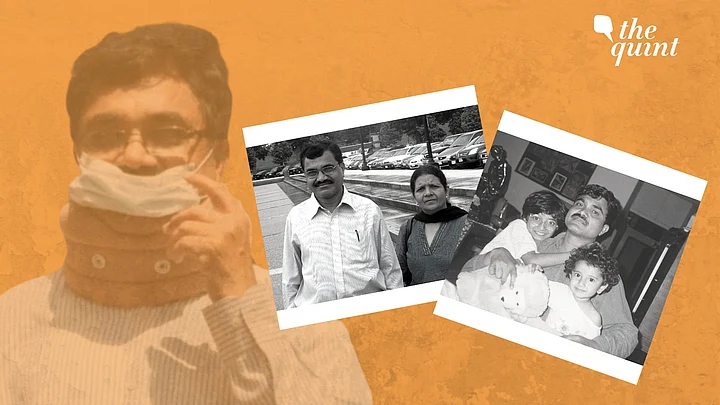Anand Teltumbde, one of the 16 accused in the Bhima Koregaon-Elgar Parishad case, who walked out of prison on Saturday, 26 November, after his bail was upheld by the Supreme Court on Friday 25 November, once wrote:
“Maoism and nationalism are simply modern-day euphemisms for outcaste and caste, respectively.”
The 73-year-old prolific anti-caste writer, who had been in prison since 2020 under stringent sections of the Unlawful Activities (Prevention) Act (UAPA), was, perhaps, not wrong.
During the Supreme Court hearing on Friday, the National Investigation Agency vehemently tried to link his Dalit mobilisation efforts to 'Maoism.'
Irked, Chief Justice of India DY Chandrachud inquired:
"Is Dalit mobilisation a preparatory act to proscribed (forbidden) activity?"
The CJI, after the NIA presented all its 'evidence' against him, had further asked "what the role attributable to him" was in the case.
In fact, the 18 November Bombay High Court bail order, which the top court upheld on Friday, affirmed this.
Teltumbde was granted bail on 'merits' (meaning: no prima facie case was made out against him.)
The NIA, however, had filed a plea against the high court bail order in the Supreme Court and requested that the bail order be stayed for a week.
As former Madras High Court Judge Justice K Chandru, whose work inspired the movie Jai Bhim, put it in conversation with The Quint:
"More than a crime, it [the Bhima Koregaon-Elgar Parishad case] is an ideological battle."
'Judicial System Failed, Disgusting That He Had To Wait'
Explaining his point further, Justice Chandru pointed out that the accused in the case have consistently, over the years, "challenged" the BJP’s attempt to establish a "one-dimensional" history.
"It is unusual that for the first time Marxist intellectuals and Dalit activists were grouped together under a common conspiracy," he said.
The "trumped up charges" against the 16 accused are, thus, a response to the intellectuals striving to establish a different point of view, especially Dalits.
"I was really happy that Anand got bail at last. However, the judicial system has failed miserably and it is disgusting that a person had to wait two and a half years to get bail, that too after establishing that there was no prima facie case attracting the provisions of UAPA."Justice Chandru
'NIA's Reign of Terror Slowly Coming To a Pause'
Although Senior Supreme Court Advocate Colin Gonsalves critiqued the judiciary for delaying Teltumbde's bail too, he seemed to think that the top court's order in the last few cases (for instance: allowing house arrest for Gautam Navlakha) was a sign that "the reign of terror of the NIA is slowly coming to a pause."
"For years, they managed to terrify the lay public about these accused persons as if they were the most dreaded terrorists when there was really no evidence against him except for fairy tales," he said.
What was also significant in the high court's and the Supreme Court's ruling was that it went against the widely decried Watali (NIA v. Zahoor Ahmad Shah Watali) judgment, Gonsalves mentioned.
The 2019 judgement by the apex court made it nearly impossible for courts to grant bail in UAPA cases, he pointed out, especially because the government could oppose bail even if the documents they produced as evidence were not admissible.
'Relief That SC Did Not Interfere With Bail Like Saibaba's Case'
Anand Teltumbde's release came as a relief to Senior Supreme Court Advocate Sanjay Hegde, especially when compared to the Supreme Court's role in reversing GN Saibaba's bail order in an 'urgent hearing.'
On 15 October, the Supreme Court, in an urgent Saturday hearing, reversed the Bombay High Court judgment that had discharged Professor GN Saibaba in an alleged maoist-links case and stayed his release.
"The courts are supposed to be the guardians of the liberties of the citizens. The prosecution's intention in this case (like in other UAPA cases) is to never let the case get to the trial stage and it is time the court's stepped in," Hegde added.
But Is This Cause for Celebration?
"People are celebrating the bail order, rejoicing over it, but Teltumbde had to stay in jail for over two years over nothing. While his bail order is a relief, there is nothing victorious about this," Delhi-based criminal lawyer Ahmad Ibrahim pointed out.
And is there hope for the other accused waiting for bail in the case?
The top court's order is a "good precedent" for the lower trial courts but what needs to be kept in mind is that each case will "will have to be decided on its own merits," Justice Chandru said.
"Each case will have to be seen on its own merits especially when a lot of them are based on the supposition of evidence, I wouldn't go overboard to say that everyone will get bail but yes in due time one should hope that their agony is not prolonged unnecessarily," Hegde added.
(At The Quint, we question everything. Play an active role in shaping our journalism by becoming a member today.)
